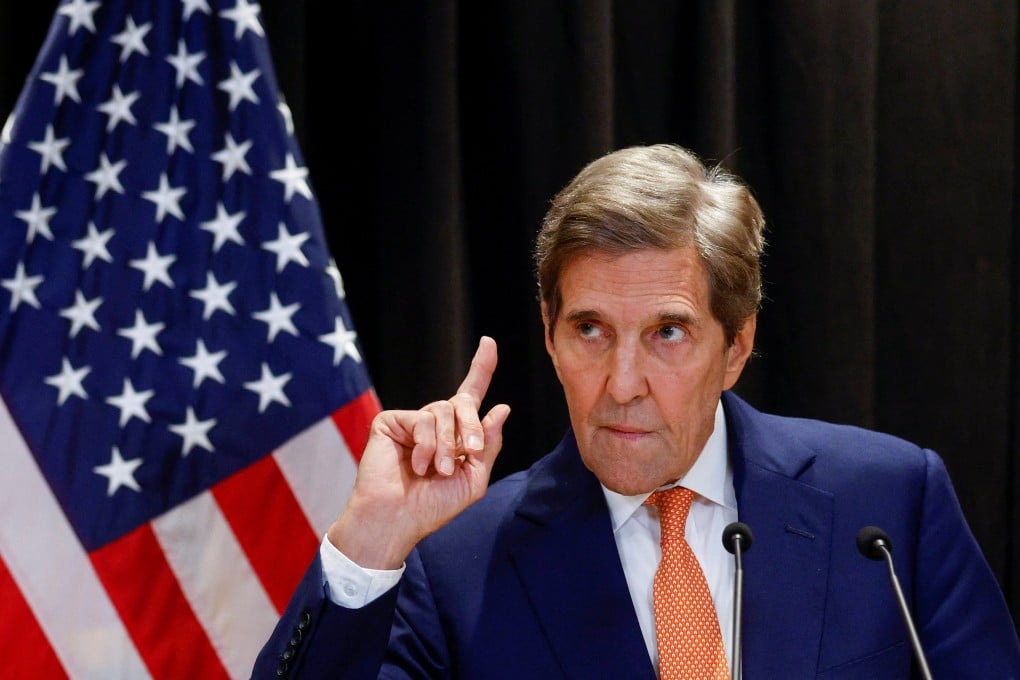Advertisement
China and US can still cooperate on climate policy but tech remains tricky, experts say in wake of Kerry visit
- US climate envoy John Kerry wraps up ‘very productive’ trip but acknowledges it will take ‘a little bit more work’ to break new ground
- America’s low-carbon transformation will be slow and costly if decoupled from China, observer says
Reading Time:4 minutes
Why you can trust SCMP
3

US climate envoy John Kerry ended his four-day visit to China on Wednesday with few breakthroughs, but observers said that while it would be hard for China and the US to work together on climate technology, it was still possible for them to cooperate on policy and share best practices.
Kerry told a news conference on Wednesday that his talks with Chinese officials were “very productive”, adding that more work needed to be done.
“We’re here to break new ground because we think that’s essential,” Kerry said. “But we had a very extensive set of frank conversations and realised it’s going to take a little bit more work to break the new ground.”
Advertisement
Kerry said Beijing and Washington agreed to work together to guarantee a positive outcome for the 28th session of the Conference of the Parties (COP28) to the United Nations Framework Convention on Climate Change, to be held in Dubai later this year, and the two sides agreed to “work intensively in the weeks ahead”.
In an effort to stabilise the relationship between the world’s two largest greenhouse gas emitters, Kerry met a slate of senior Chinese officials during his visit, including his Chinese counterpart Xie Zhenhua, Premier Li Qiang, Vice-President Han Zheng and top diplomat Wang Yi.
Climate change has played a key role in the US-China bilateral relationship, but the two countries’ climate talks were suspended after former US House speaker Nancy Pelosi visited Taiwan in August 2022.
Advertisement
Select Voice
Select Speed
1.00x
